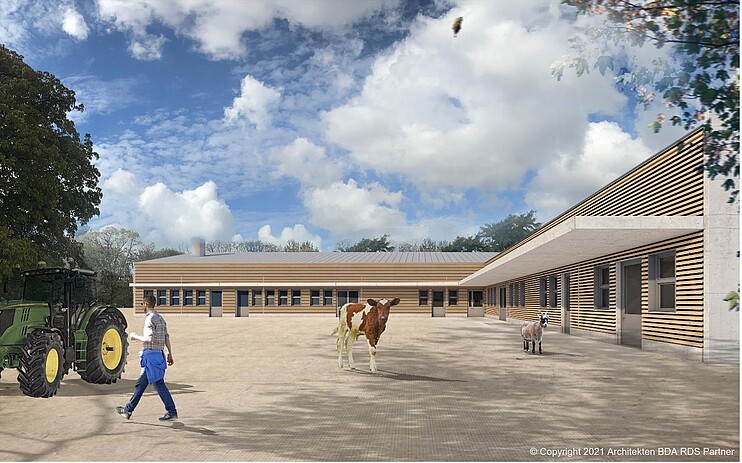Module II is used to conduct in vivo experiments with farm animals. Here, biological samples from farm animals, cell tissues, and microorganisms are obtained for further investigations using the existing chemical and microbiological methods in Module I. Two husbandry facilities are of outstanding importance for the research at HoLMiR. The first is the respiration chambers, which allow quantitative measurements of the consumption and formation of metabolic gases even with large farm animals such as cattle. This makes it possible, for example, to study both the methane output from the forestomach and the microbiome present there. The second of these critical husbandry facilities is for keeping gnotobiotic poultry in a germ-free area. These facilities allow researchers to identify specific functions of defined microorganisms or defined microbiomes and their effect on the animal. Research on animal health and welfare also plays an important role.
Module II contains the facilities required for specific metabolic experiments including respiration chambers for gas exchange measurements and the keeping of gnotobiotic poultry. In addition, there are rooms for producing and storing special diets. In total, husbandry capacities for up to 6 cattle, 20 sheep, 20 pigs, and around 100 chickens are planned. The housing conditions must meet the latest hygienic and technical standards and are regulated by law. Compliance with these regulations is regularly monitored by both the university's animal welfare officer and the animal welfare authorities.
